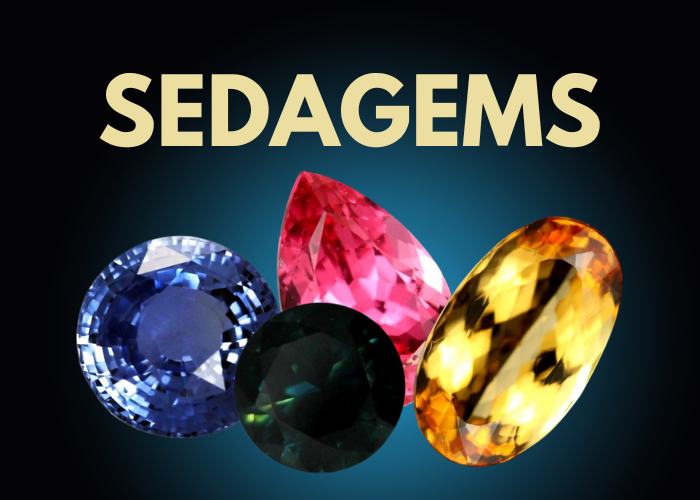51.9 CTS MALACHITE SPECIMENS -ZAIRE [MGW4265 ]
- 存貨單位
- 尺寸(毫米)
- x x mm
- 重量 (cts)
- 類型
- Specimen
- 顏色
-
MINERAL GEM WORLD
MALACHITE SPECIMEN
Beautiful dark green fibrous Malachite from Zaire. The crystals form delicate patterns that remind me of a miniature forest. Great as a specimen
Natural untreated
Weight 51.9 cts app
size 32X22X13 mm app
Often found in massive or botryoidal form this beautiful mineral has been treasured for it’s ornamental qualities for thousands of years. The name Malachite is derived from the Greek word “Malakhe” or marshmallow plant because of the startling green color. It was popular for ornamental use as far back as the ancient Egyptians who used it in both statues and adornments. They also ground it to a powder and, having mixed it with water, painted it on their eye lids. It was also used as a pigment for paint in Egyptian tomb paintings and much later in European art during the 15th century. The Romans used it to fashion amulets where it was known as Peacock Stone and dedicated to the Goddess Juno. She was worshipped as a protector from the perils of natural disasters. There is evidence that Malachite was mined on the Sinai Peninsula as early as 4000 B C. Large deposits also existed in the Ural Mountains and were used to decorate the luxurious palaces of the Tsars. These showy specimens of fiberous crystals display from all sides and come from Zaire.
Malachite often results from weathering of copperores and is often found together with azurite, goethite, and calcite. Except for its vibrant green color, the properties of malachite are similar to those of azurite and aggregates of the two minerals occur frequently together. Malachite is more common than azurite and is typically associated with copper deposits around limestones, the source of the carbonate.
- 存貨單位
- 尺寸(毫米)
- x x mm
- 重量 (cts)
- 類型
- Specimen
- 顏色
-
MINERAL GEM WORLD
MALACHITE SPECIMEN
Beautiful dark green fibrous Malachite from Zaire. The crystals form delicate patterns that remind me of a miniature forest. Great as a specimen
Natural untreated
Weight 51.9 cts app
size 32X22X13 mm app
Often found in massive or botryoidal form this beautiful mineral has been treasured for it’s ornamental qualities for thousands of years. The name Malachite is derived from the Greek word “Malakhe” or marshmallow plant because of the startling green color. It was popular for ornamental use as far back as the ancient Egyptians who used it in both statues and adornments. They also ground it to a powder and, having mixed it with water, painted it on their eye lids. It was also used as a pigment for paint in Egyptian tomb paintings and much later in European art during the 15th century. The Romans used it to fashion amulets where it was known as Peacock Stone and dedicated to the Goddess Juno. She was worshipped as a protector from the perils of natural disasters. There is evidence that Malachite was mined on the Sinai Peninsula as early as 4000 B C. Large deposits also existed in the Ural Mountains and were used to decorate the luxurious palaces of the Tsars. These showy specimens of fiberous crystals display from all sides and come from Zaire.
Malachite often results from weathering of copperores and is often found together with azurite, goethite, and calcite. Except for its vibrant green color, the properties of malachite are similar to those of azurite and aggregates of the two minerals occur frequently together. Malachite is more common than azurite and is typically associated with copper deposits around limestones, the source of the carbonate.
| 運輸商 | 運送至:國家 | 運送到世界其他地區 |
|---|---|---|
| FedEx | $12.00 / :幾天天 | $39.00 / :幾天天 |
|
:國家
FedEx訂單折扣為$12.00 2或更多商品
世界其他地區
FedEx訂單折扣為$39.00 2或更多商品
|
||
| Registered Shipping | $9.00 / :幾天天 | $16.00 / :幾天天 |
|
:國家
Registered Shipping訂單折扣為$9.00 2或更多商品
世界其他地區
Registered Shipping訂單折扣為$16.00 2或更多商品
|
||
-
 積極的
積極的Good stone great service
-
 積極的
積極的Great thank very much, lovely pearls.
-
 積極的
積極的Nice piece of rough. thankyou
-
 積極的
積極的Nice stone. Thankyou
-
 積極的
積極的Have received the rough. Nice colour. Thankyou





![2.95 CTS AUSTRALIAN ROUGH SAPPHIRE [SAP547]](https://liveplatforms-production.b-cdn.net/tenants/gr/uploads/images/685000-689999/689106/599d2324a1992.jpg?width=480&aspect_ratio=1001%3A1000)
![AAA GRADE ROUND PEARL PARCEL HIGH LUSTER- 7 MM [PF2206]](https://liveplatforms-production.b-cdn.net/tenants/gr/uploads/images/245000-249999/245364/245364_1319605247.jpg?width=480&aspect_ratio=1001%3A1000)


![3.10 CTS MINT GREEN GLOSSULAR GARNET ROUGH [F5077]](https://liveplatforms-production.b-cdn.net/tenants/gr/uploads/images/415000-419999/419109/536873d918eb0.JPG?width=480&aspect_ratio=1001%3A1000)


![23.34 CTS MALACITE CRYSTAL SPECIMENS -MOROCCO [MGW3832]](https://liveplatforms-production.b-cdn.net/tenants/gr/uploads/images/390000-394999/393024/529f9eead518f.JPG?width=480&aspect_ratio=1001%3A1000)
![22.40 CTS MALACITE CRYSTAL SPECIMENS -MOROCCO [MGW3822]](https://liveplatforms-production.b-cdn.net/tenants/gr/uploads/images/390000-394999/393014/529f9ae4626de.JPG?width=480&aspect_ratio=1001%3A1000)

